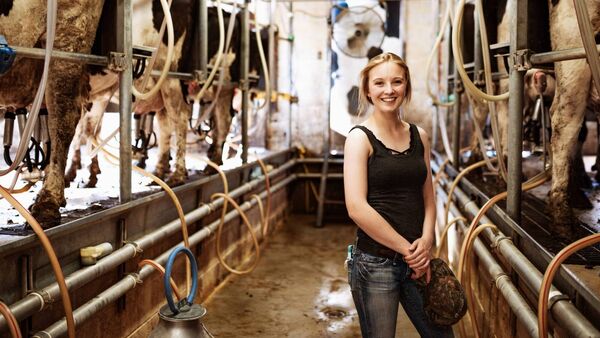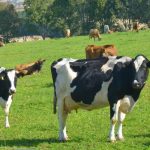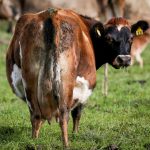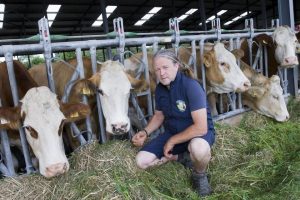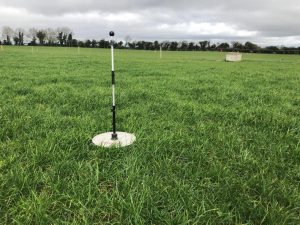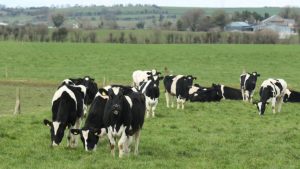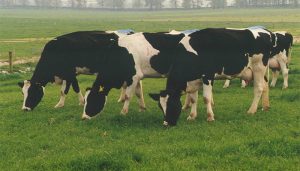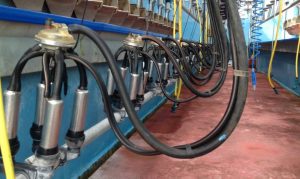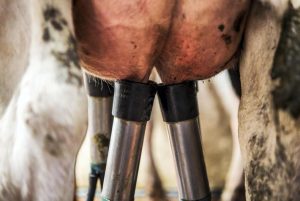
A Kerry fixed milk price scheme announced this week offers 34.8c per litre (VAT included) at 3.3% protein and 3.6% butterfat for milk supplied from March to October this year.
ICMSA dairy chairman Ger Quain said it is “extremely encouraging” and a “vote of confidence” in dairy prospects, setting a “benchmark” for other co-ops
He said it shows that 34c is a realistic target for milk outside the ring-fenced forward price.
“This forward price scheme is one of the highest offerings in terms of fixed contracts to dairy farmers in Ireland and sets the standard for where fixed contracts will need to go in the future.”
It comes against an expected backdrop of global lockdowns lifting and some return to normal post-vaccine consumer patterns, expected to be positive for dairy markets.
Rabobank forecasts a 1.1% increase in milk production in the Big-7 dairy-producing regions in 2021, compared to 1.6% in 2020, a tightening of supply which should also support markets.
But China’s elevated near-term import demand is expected to slow later in the year.
IFA dairy chairman Stephen Arthur said co-ops must move to increase prices, as they meet to decide milk prices for February, with dairy markets strengthening.
“If processors don’t move immediately, it will be a kick in the teeth for farmers,” he said.
Already, Glanbia and Lakeland Dairies have announced February prices which are up 1c per litre on their January prices.
Meanwhile, the ZuivelNL monthly price report showed that Dairygold Co-op paid the second highest January milk price of 17 EU milk processors.
And Glanbia paid the third highest price.
However, along with Kerry, the three Irish processors remain near the bottom in the rankings, in terms of rolling average price for the last 12 months.
The prices, published on behalf of the LTO Nederland farmers organisation, in collaboration with EDF (European Dairy Farmers), are VAT excluded, for milk standardised at 4.2% fat, 3.4% protein, 1,000,000 kg per year, TBC 24,999 per ml, and SCC 249,999 per ml.
Given in euro per 100 kg of milk, the January milk prices of 17 processors averaged €33.77.
Dairygold paid €35.28, Glanbia €34.90, and Kerry Agribusiness €32.45.
Only Valio in Finland, at €36.08, paid a higher January price than Dairygold.
According to the ZuivelNL report, the biggest price increase in January compared to December was at Dairygold, and was due to the 3c per litre early calving bonus paid in January, intended to stimulate winter production.
ZuivelNL said Glanbia were one of the other “solid risers”, with the price increase by the Kilkenny-based processor due to a seasonal supplement.
For the eighth consecutive month, the average monthly milk price in the ZuivelNL report has risen slightly, totalling a rise of €1.59 per 100 kg (or 4.9%) since May, 2020. The report includes prices for Emmi in Switzerland (€51.72), Fonterra in New Zealand (€32.33), and the United States Class III price (€32.50).
ZuivelNL said milk price development in the EU for the next two months is difficult to predict.
“The dairy market is looking more positive, as reflected by the higher Dutch quotations in recent weeks, but the picture of milk price development in February and March is variable and cautious.
“For example, the milk price of Arla is expected to remain stable in February and to increase slightly in March (by €0.50/100kg).
“FrieslandCampina’s milk price shows a little plus for both February and March, of €0.70 and €0.20 respectively.
“The milk price of Milcobel will increase by €0.50 in February, while the milk price of Saputo Dairy UK will remain unchanged until April.”
“At DMK, there will be a decrease (€0.50) in February, but this will be reversed in March (€0.50).
ZuivelNL noted that the dairy product price level in Europe is now below that of the world market, which has increased the possibilities for European exporters.
Meanwhile, the Ornua Purchase Price Index monthly indicator of market returns for products purchased by Ornua has continued to climb steadily, from 99.2 in April to 108.5 in February.
Milk market prospects are also improved by the four-month suspension of trade tariffs by the EU and US. Irish exports to the US attracting an additional €105 million tariffs (in a full year) included €190.2m of butter, cheese (€43.7m), and Irish cream liqueur drinks (€184m).
